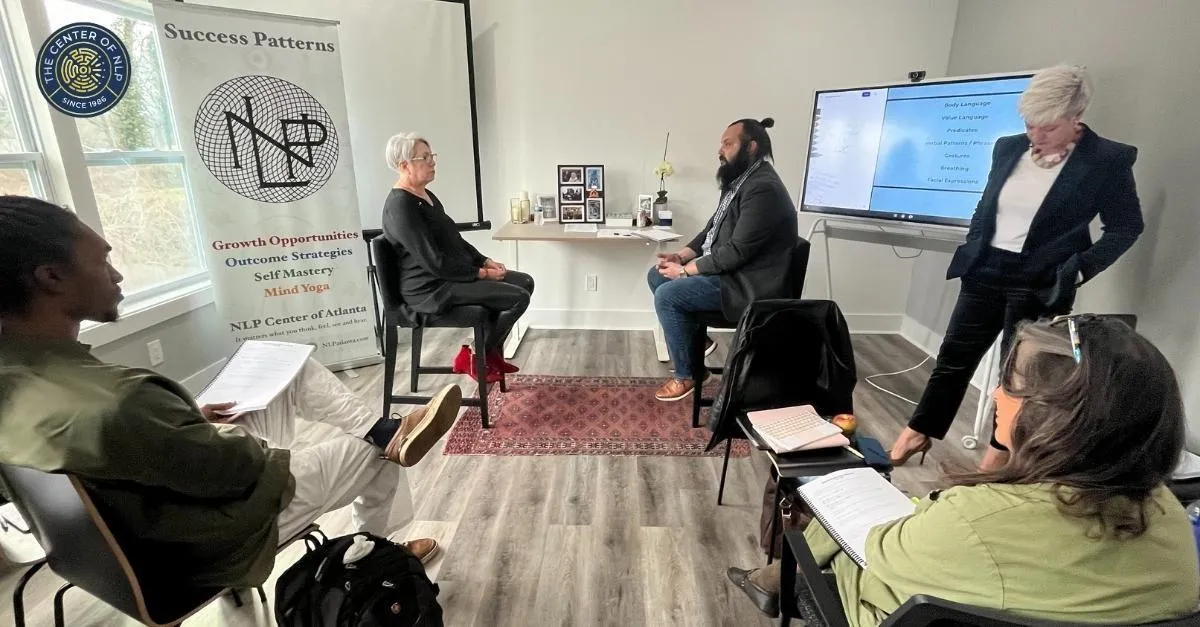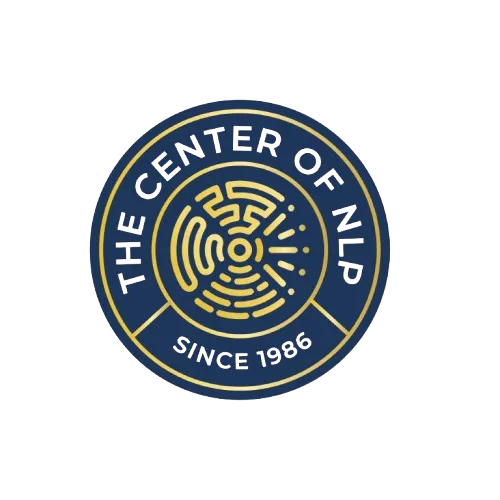
NLP for Public Speaking: Gain Confidence and Impact
NLP exercises for personal growth in public speaking: Neuro-Linguistic Programming (NLP) uses mental training techniques to reduce fear, build confidence, and improve communication in public speaking. Through daily exercises like visualization, anchoring, and mindset reframing, NLP helps speakers shift negative patterns and speak with clarity and confidence.
Introduction
Fear of public speaking holds back millions of smart, capable people. Whether it’s a boardroom pitch or a toast at a wedding, the anxiety can be paralyzing. The good news? You don’t have to live with that fear forever. At The Center of NLP, we teach practical and proven NLP exercises for personal growth that break down mental barriers and build lasting confidence.
With the right tools, you can train your mind to speak with clarity and power. Read on—we’ll walk you through what NLP is, how it works for public speaking, and how to start practicing today.
What Is NLP and How Can It Help?
Neuro-Linguistic Programming (NLP) focuses on how our thoughts, language, and behaviors affect outcomes. In public speaking, NLP helps rewire your response to fear and stress. Instead of freezing up, you learn to control your emotions, stay present, and connect with your audience.
At The Center of NLP, we guide clients through actionable NLP techniques that shift mental patterns. By reprogramming how you think about public speaking, you can gain confidence and speak with ease.
These methods aren't theoretical. They're backed by years of success stories from people just like you—people who once dreaded speaking in front of others but now speak with control and comfort.
Why Do People Fear Public Speaking?
Let’s face it—public speaking triggers real fear for many. Here’s why:
Fear of judgment or embarrassment
Lack of confidence or past bad experiences
Worrying about forgetting words or making mistakes
Physical reactions like a racing heart or shaky hands
This fear is not about ability—it’s about mindset. And that’s where NLP shines.
NLP mindset shift techniques help you reshape how you interpret the moment. Instead of seeing the stage as a threat, NLP helps your brain see it as an opportunity.
Several targeted NLP techniques directly help with public speaking anxiety. These include:
1. Anchoring
This method helps you create a physical trigger (like touching your fingers) that brings up a calm or confident feeling. With repetition, your brain connects the motion to the feeling.
2. Swish Pattern
You replace negative mental images (like imagining failure) with positive ones (like seeing yourself speaking clearly). The more you practice this, the quicker your brain rewires.
3. Reframing
You take a fearful thought—like “What if I mess up?”—and reframe it as “What if this goes better than I expect?”
4. Visualization
Daily visualization of a successful speech trains your mind to accept that scenario as normal. The brain doesn't know the difference between practice and reality—it prepares the same way.
These NLP techniques for achieving goals are simple but powerful. Practiced consistently, they create lasting change.
How Do NLP Exercises Build Confidence?
Confidence doesn’t come from repeating “I can do it” in the mirror. It comes from evidence—real or imagined—that you can handle a situation.
NLP exercises for personal growth create that evidence. Here’s how:
They change how your brain interprets feedback and failure
They rewire your emotional response to fear triggers
They make success feel familiar before you ever speak
Imagine walking on stage and feeling calm instead of anxious. That’s possible when your mind expects success. NLP gives you that edge.
Can NLP Improve Speech Delivery?
Yes—your delivery matters just as much as your words. NLP helps improve speech delivery by focusing on:
Voice and Pace Control
NLP teaches awareness of tone, speed, and volume. Through practice, you become a more natural, engaging speaker.
Body Language Awareness
Your posture, gestures, and facial expressions affect how your message is received. NLP aligns your non-verbal cues with your message.
Audience Connection
Using NLP for motivation, you can anchor your emotions to audience reactions, helping you stay energized and engaged throughout your talk.
The result? You don’t just speak—you connect. And that connection makes you memorable.
How Can You Practice NLP Daily?
Consistency beats intensity. Here are small, daily steps that drive growth:
Morning Visualization: Spend 5 minutes each morning visualizing a confident speech.
Anchoring Practice: Use your confidence anchor before work meetings or calls.
Journaling Wins: Log every positive interaction or speech success to build evidence of progress.
Language Shifts: Replace negative self-talk with questions like, “What would I do if I were already confident?”
Here’s what else helps:
Stay aware of your posture and breathing
Practice speaking aloud to a mirror or camera
Keep your tone conversational and relaxed
These habits grow confidence over time, and they all support your NLP personal development journey.
What Makes NLP Better Than Other Methods?
Most public speaking courses focus on structure, not mindset. NLP is different.
While traditional methods teach you how to write a speech, NLP teaches you how to feel good giving it. That emotional shift changes everything.
With NLP, you don’t just learn. You transform.
Benefits of using NLP include:
Long-term mindset change
Control over emotional and physical reactions
Improved memory, focus, and message clarity
A true shift in how you see yourself as a speaker
This is why so many of our clients say NLP didn’t just help them speak—it helped them grow.
Conclusion: Confidence Is a Skill You Can Train
You don’t have to be born a confident speaker. Confidence is a skill, and NLP teaches it better than anything else out there. If you’re tired of sweating before presentations or avoiding opportunities because of fear, it’s time for a change.
Use NLP exercises for personal growth to rewrite your story. The Center of NLP is here to guide you—step by step—into your best speaking self.
FAQs
1. Can NLP help with stage fright?
Yes, NLP rewires how your brain responds to fear, reducing stage fright and building calm confidence over time.
2. How fast can NLP results show?
Some people feel better after one session. Consistent practice brings long-term results within weeks.
3. Is NLP safe and scientifically supported?
Yes, NLP uses proven psychological principles. It’s non-invasive and used worldwide in coaching and therapy.
4. Do I need a coach for NLP?
While self-study helps, a trained NLP coach can speed up your results and tailor exercises to your needs.
5. Can NLP help in professional settings?
Absolutely. NLP is widely used for leadership, sales, and presentations—anywhere communication and confidence matter.
Check Out For more:

